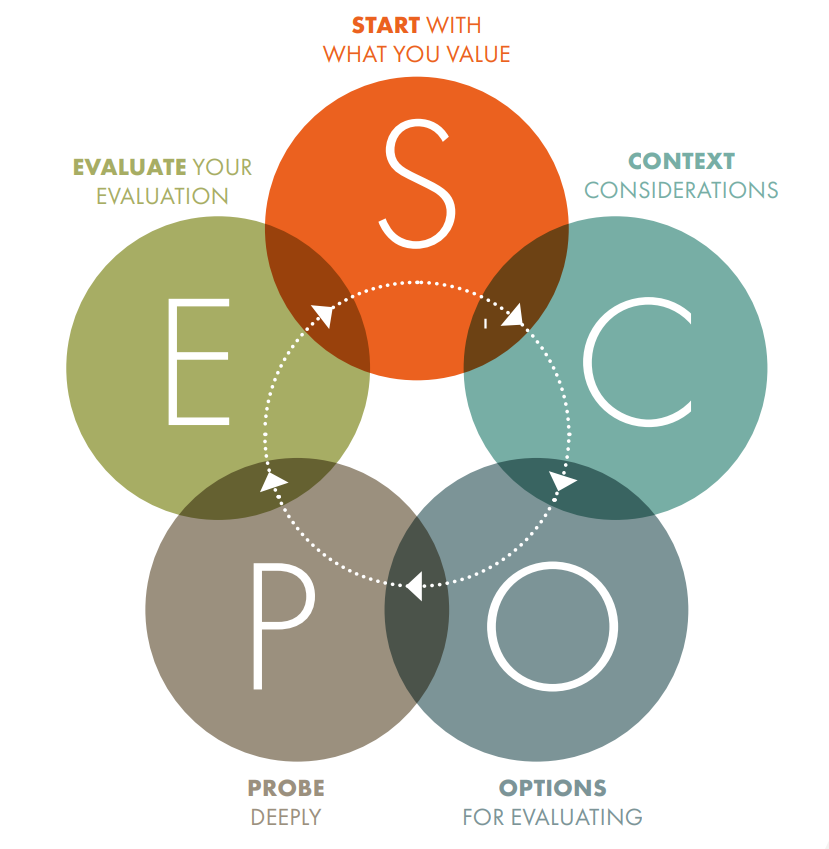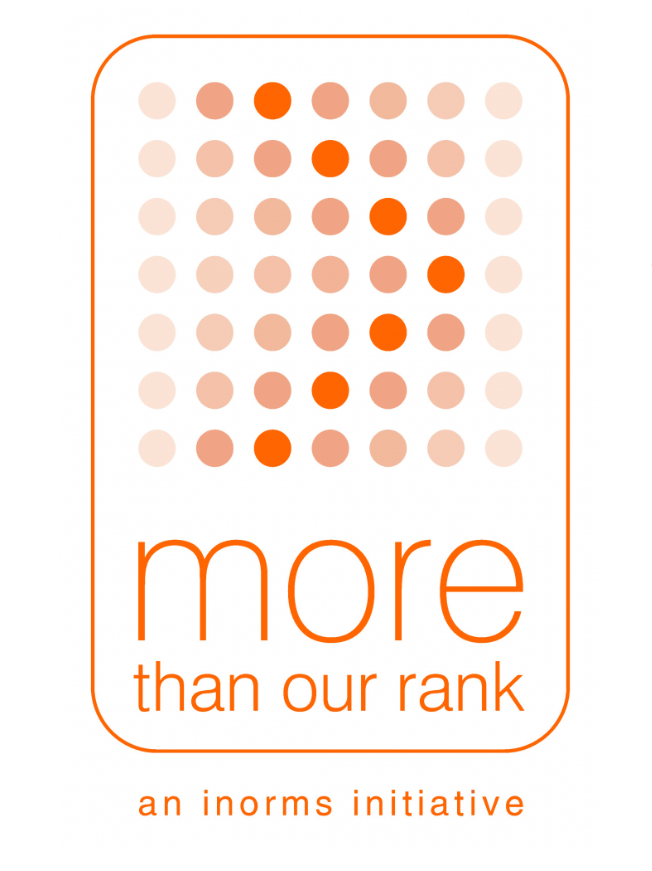About the INORMS Research Evaluation Group
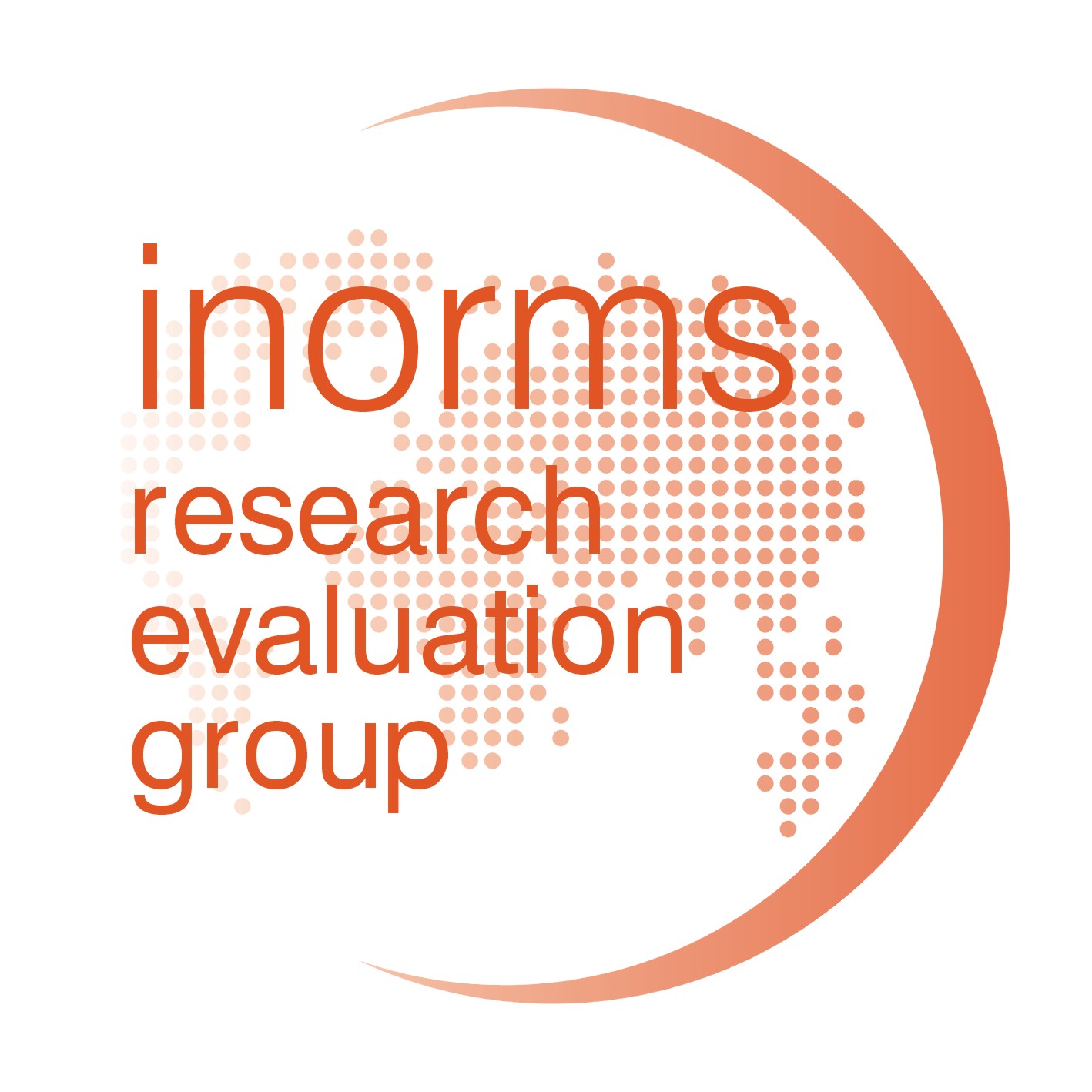
The INORMS Research Evaluation Group (REG), previously known as REWG, was established in 2018 to consider how best to ensure that research evaluation is meaningful, responsible and effective. To this end, group members representing the research management societies that make up INORMS have focused their attention on two work-packages. The first seeks to guide senior university leaders and practitioners in the adoption and practice of responsible research evaluation. To this end it has designed the SCOPE framework for, and a series of ‘five arguments’ for engaging senior leaders with, responsible research evaluation. The second initiative focuses on emphasizing the increasing influence of Global University Rankings on university behavior, expressing reservations about the emphasis on scoring and competition. Discussions on the foundational data of these rankings are facilitated, and potential alternatives are explored by the group. Additionally, in response to specific problematic features and effects of global university rankings, the group has introduced the More Than Our Rank initiative, with the goal of reconsidering the utilization of rankings.
Group membership is via nomination from INORMS member organizations. Please contact your membership organization in the first instance. Anyone can join the wider INORMS REG community via the INORMS-RES-EVAL discussion list.
SCOPE Framework for Research Evaluation
The International Network of Research Management Societies (INORMS) Research Evaluation Group (REG) brings together representatives from a range of global member research management societies to work towards better, fairer, and more meaningful research evaluation. The SCOPE framework for research evaluation is a five-stage model for evaluating responsibly. It is a practical step-by-step process designed to help research managers, or anyone involved in conducting research evaluations, in planning new evaluations as well as check existing evaluations.
Why SCOPE?
Research evaluation has historically been indicator- and data-driven and therefore limited to a small number of publication-based citation metrics or research income based measures. In response to sector concerns about poor research evaluation practices, the SCOPE Framework was developed by the International Network of Research Management Societies (INORMS) Research Evaluation Group (REG) as a practical way of implementing responsible research evaluation principles to design robust evaluations.
More Than Our Rank
The More Than Our Rank initiative has been developed in response to some of the problematic features and effects of the global university rankings. It provides an opportunity for academic institutions to highlight the many and various ways they serve the world that are not reflected in their ranking position. It is an initiative for institutions who are proud of their ranking position but also recognize the limitations of the indicators used, and for those who feel that the rankings do not reflect their strengths or institutional mission. Every institution in the world is much more than their rank. This initiative is simply an opportunity to publicly say so and explain why.
Rethinking Global University Ranking
The Rankings sub-group created a system for grading international university rankers in an effort to draw attention to the discrepancy between the methodologies used by some of the global university rankings and generally accepted best practices in responsible research evaluation. The method is based on a community-developed list of standards for impartial and responsible university evaluation, which was converted into a set of questions by which each standard may be assessed.
INORMS Research Evaluation Team
Chair:
Dr Elizabeth Gadd

Head of Research Culture & Assessment, Loughborough University, UK
Dr. Elizabeth (Lizzie) Gadd chairs the INORMS Research Evaluation Group and is Vice Chair of the Coalition on Advancing Research Assessment (CoARA). In 2022, she co-authored ‘Harnessing the Metric Tide: Indicators, Infrastructures & Priorities for UK Research Assessment’. Lizzie is the Head of Research Culture & Assessment at Loughborough University, UK and champions the ARMA Research Evaluation SIG. She previously founded the LIS-Bibliometrics Forum and The Bibliomagician Blog and was the recipient of the 2020 INORMS Award for Excellence in Research Management and Leadership.
Contact: e.a.gadd@lboro.ac.uk
Research Management Societies and Associations: ARMA
Deputy Chair:
Tanja Strøm

Senior Research Adviser, Research and Societal Impact, Oslo Metropolitan University, Norway
Tanja Strøm is bringing over three decades of experience in research administration and library science to her role. Her expertise encompasses open science, responsible research evaluation, scholarly communication, and enhancing researcher impact. Tanja’s career is marked by active participation in numerous conferences, projects and committees, where she has been a strong advocate for transparency in research. Her commitment to fostering open and responsible research practices is evident from her previous roles as Deputy Chair of NARMA and Chair of special interest groups on Research Evaluation and Open Science. Currently, Tanja contributes to the DORA-project Tara and represents her university in the NORCAM National Chapter of CoARA.
ORCID: 0000-0002-2937-858X
Contact: tanja.strom@oslomet.no
Research Management Societies and Associations: NARMA
Members:
Dr Baron Wolf

Director, Research Analytics, University of Kentucky, USA
Dr. Wolf has more than 20 years of experience working in institutional research, effectiveness, and strategic planning. He earned a PhD in Educational Policy Studies and Evaluation from the University of Kentucky and is an active researcher. Baron provides data analysis, strategic planning, advises on policy and program offerings. Works collaboratively with other research administration units on campus to provide robust business intelligence tools to faculty, staff, and leadership to improve decision making. Dr. Wolf is a funded researcher and is the principal investigator of two U.S. National Science Foundation grants and a project from the Institute of Museum and Library Services. In addition, he provides data analytic support to two National Institutes of Health center projects at the University of Kentucky.
Contact: baron.wolf@uky.edu
Research Management Societies and Associations: SRA
Dr Erica Conte

Director, Funding Strategy and Stewardship, Unity Health Toronto, Canada
Dr. Erica Conte obtained her PhD in Physiology from Western University (Canada). She has worked in research administration and research leadership for over 10 years within a hospital-based research institution, where she supports the full breath of health research spanning fundamental science through to translational research, health services/policy and knowledge translation. In her current role as Director of Funding Strategy and Stewardship, she is involved in the responsible research evaluation of both the institution and its individual scientists. She is also very interested to understand, or help further develop, best practices for incorporating aspects of equity, diversity and inclusion into responsible research evaluation. Erica has been an active member of the Canadian Association of Research Administrators (CARA) since 2014, during which time she has held several volunteer positions to help advance the field of research administration in Canada.
Contact: Erica.Conte@unityhealth.to
Research Management Societies and Associations: CARA
Dr Fang Xu
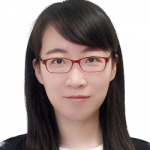
Professor, Institutes of Science and Development, Chinese Academy of Sciences, China
Dr. Fang XU holds a PhD degree in Management Science at University of Kent. She is now a professor of the Institutes of Science and Development, Chinese Academy of Sciences. She is also a Steering Committee member of DORA, Elsevier B.V. International Advisory Panel,and the secretary general of Science and Technology Evaluation Special Committee of China Science and Technology Policy Studies. Dr Xu, as well as her colleague, Dr Xiaoxuan Li have carried out long-term research on the theory and method of research evaluation, and has rich experience in organizing research institute evaluation, research project review etc., which has played a great role in supporting the macro management and decision-making of CASHQ and Chinese government.
Contact: xufang@casisd.cn
Research Management Societies and Associations: CASSSP
Kaoru Nishimura-Goto

Graduated from Kyoto University (Linguistics), with further studies in Germany and France, including degrees from Université Paris VII. Holds two master’s degrees, in Human Developmental Science and Technology Management. Since the early 1990s, has supported a wide range of research activities. Served as research assistant at CNRS Tokyo Office, then as a specialist at JSPS, and as URA at the University of Tokyo and Tokyo Institute of Technology. Experienced in international research collaboration, science policy, researcher development, and public outreach. Most recently, worked as Project Manager at Tottori University and the Tottori NEXT Innovation Initiative. Translator of The Myth of Height (co-translate) and The Gene of Hope
Research Management Societies and Associations: RMAN-J
Justin Shearer

Associate Director, Research Information and Engagement, University of Melbourne, Australia
Justin is Associate Director, Research Information and Engagement at the University of Melbourne, where he has portfolio responsibility for a diverse range of research support functions, including scholarly communications, bibliometrics, digital preservation, copyright, digital stewardship, research information management and the University’s Digitisation Centre.
His recent work experiences also include the Archives and Special Collections and being the previous Business Product Owner for the Find an Expert Refresh Project, which was tasked with developing a new researcher profile tool for the institution. Previously, he was Manager, Research and Industry in the Faculty of Business and Economics, where he had a focus on grant and industry funding. He has twelve years’ experience in research management, with a particular interest in customer experience, business storytelling, industry engagement, researcher development and research evaluation.
Contact: shearer.j@unimelb.edu.au
Research Management Societies and Associations: ARMS
Laura Himanen

Project manager, CSC – IT Center for Science, Finland
Laura works as a project manager at CSC – IT Center for Science in Finland. Her main tasks concentrate on the development of the national research information hub, Research.fi, with a specific focus on responsible research assessment and research information management.
Himanen is a member of the national Steering Group for Responsible Assessment of the Researcher, the CoARA Working Group on Open Infrastructure for Responsible Research Assessment, and an active participant in several working groups and networks within the areas of research(er) assessment and open science.
ORCID: 0000-0001-8289-9766
Contact: laura.himanen@csc.fi
Research Management Societies and Associations: Finn-ARMA
Marianne Gauffriau

Research advisor, IT University of Copenhagen, Denmark
Marianne is part of the pre-award team at IT University of Copenhagen, Denmark. She holds a Master in Library and Information Science and a Professional Master in Evaluation. Marianne is member of the Research Portal Denmark’s Advisory Board. She contributes to international research projects and serves as reviewer for journals and conferences. Marianne’s research focuses on the construction of bibliometrics indicators and responsible research evaluation.
ORCID: 0000-0001-7639-7719
Contact: m.gauffriau@gmail.com
Research Management Societies and Associations: DARMA
Dr Tee Boon Tuan
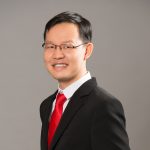
Associate Professor, Faculty of Mechanical Engineering, Universiti Teknikal Malaysia Melaka, Malaysia
Tee Boon Tuan is an Associate Professor in Faculty of Mechanical Engineering at Universiti Teknikal Malaysia Melaka (UTeM). He obtained his BSc (Hons.) Mechanical Engineering from Universiti Teknologi Malaysia and MSc. Advanced Mechanical Engineering from University of Sussex, UK. He is also graduated from University of Cambridge with PhD Degree in Engineering. Boon Tuan’s research interests focus on building energy management and green technology. He is also a registered Professional Technologist under Malaysia Board of Technologists (MBOT) and one of the committee members for The Malaysia Association of Research Managers & Administrations (MYRMA). In his current role as the Deputy Director of Centre for Research & Innovation Management (CRIM), Universiti Teknikal Malaysia Melaka, he has been involved in handling research grants management process and organizing workshops/seminars for research grant application.
Contact: tee@utem.edu.my
Research Management Societies and Associations: MyRMA
Dr William Bramwell

Senior Policy and Networks Manager, The association of Commonwealth Universities, UK
Will manages the ACU’s international research and professional services networks, convening its 400+ university members to inform the ACU’s advocacy strategy in evidencing the importance of HE and research for sustainable development to Commonwealth governments. This includes a research services Community of Practice that works to strengthen institutional research infrastructures, facilitate equitable research partnerships, and promote inclusive research assessment initiatives. In this capacity, Will also manages the ACU’s data benchmarking service which enables universities to share and compare contextual data on institutional research support and research management provision. He represents the ACU on a number of international HE and research networks; these include the INORMS Working and Research Evaluation Groups, the UK Collaborative on Development Research (UKCDR) Research Capacity Strengthening Group and the Building Evidence in Education – Higher Education Special Interest Group.
Contact: william.bramwell@acu.ac.uk
Research Management Societies and Associations: Association of Commonwealth Universities
Ms Maryke Hunter-Husselmann

Director, Research Information and Strategy, Division for Research Development, Stellenbosch University, South Africa
Maryke Hunter-Husselmann, with 17 years of experience in research management, has significantly contributed to the field at Stellenbosch University and nationally. Holding an M Phil in Social Research Methodology, she strategically promotes research partnerships, facilitates strategic research themes, develops comprehensive policies, and conducts critical research audits. At CREST, she teaches in specialized research management programs, sharing her expertise with postgraduate students. Her professional leadership includes serving on SARIMA’s executive committee, holding pivotal Vice President roles in Capacity Building and Research domains. Recognized for her outstanding contributions, she received the prestigious DST-SARIMA Excellence Award in 2016 and the Stellenbosch University Chancellor’s Award in 2019. She is a member of the South African Academy for Science and Arts and OWSD. Her passion drives collaborative projects like RIMI4AC, StoRM, and TreMOR, advancing research management capacity in Southern Africa through initiatives funded by the EU and African Academy of Sciences.
Contact: mh3@sun.ac.za
Research Management Societies and Associations: SARIMA
Dr Reingis Hauck
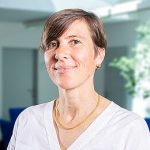
Director of Research and innovation Services at Leibniz University Hannover, Germany
Reingis is the director of the Research and Innovation Services at Leibniz University Hannover, Germany. She has more than 20 years of experience working in the research management sector. She has been very active in supporting the cultural change around Open Science, e.g. she initiated & organized the first German Open Science Festival in Hannover in 2022. Alongside the implementation of a CRIS at Hannover she also started to provide scientometric services with her team for the university. She designs & gives workshops with the goal of improving metrics literacy.
ORCID: 0000-0002-5484-8766
Contact: Reingis.hauck@zuv.uni-hannover.de
Research Management Societies and Associations: FORTRAMA
Raquel Salviati

Research Manager at Oswaldo Cruz Foundation, Brazil
Dr. Raquel is the President of the Brazilian Research Administration and Management Association (BRAMA) and has served as a Research Manager at the Oswaldo Cruz Foundation (Fiocruz) since 2011. She holds a Bachelor’s and Master’s degree in Biomedical Sciences and completed her PhD in Technology and Society, focusing on metrics and impact indicators in research funding. Dr. Raquel is actively involved in organizing workshops to train Brazilian researchers and managers in research administration. At Fiocruz, she supports researchers in identifying and formalizing research partnerships, as well as in the pre-award stages of grants and awards. Additionally, she is part of the Inova-Fiocruz Program, where she evaluates projects and assesses the impact of research on the Brazilian National Health System.
Contact: raquel.salviati@fiocruz.br
Research Management Societies and Associations: BRAMA
Sofia Andersson

Research advisor at Karlstad University
Sofia is a Research Advisor at Karlstad University in Sweden. In this role, she is engaged in developing administrative processes and the quality assurance system in support of research. Sofia sits on the Karlstad University Quality Council and is responsible for coordinating the institutional commitment towards CoARA. Sofia also chairs the research quality assurance subgroup in SWARMA, the Swedish Association for Research Management and Administration. She holds a PhD in Biomedical Sciences and has a deep understanding of academic culture and discipline-specific traditions. Moreover, Sofia is overseeing the transformational change towards Open Science, which is a long-term effort where the implementation of policies and infrastructure needs to be in balance with research integrity standards and practices.
Contact: sofia.andersson@kau.se
Research Management Societies and Associations: SWARMA
Oksana Shevchuk
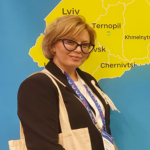
Head of Research Management Office at I. Horbachevsky Ternopil National Medical University in Ukraine
Prof. Oksana Shevchuk is the Head of Research Management Office at I. Horbachevsky Ternopil National Medical University in Ukraine. She is the Member of the Scientific Committee of the National Council of Ukraine on Science and Technology Development.
Oksana gained her PhD and DSc degrees in Pharmacology. Since 2013 she has been involved in research administration at TNMU. In 2024, she received a master’s degree in Management of Research Infrastructures (University of Milano-Bicocca, Italy). Oksana is committed to the internationalization of research and open science principles, transparency and reproducibility in science. She advocates for integration of Ukraine researchers into European and Global Research and Educational Areas.
ORCID: 0000-0003-2473-6381
Contact: shevchukoo@tdmu.edu.ua
Research Management Societies and Associations: PNRM Ukraine
Dr Ridhdhi Rathore

Research Support Officer, Teagasc, Ireland
Dr. Ridhdhi Rathore is a Research Support Officer at Teagasc – the Agriculture and Food Development Authority in Ireland. In this role, she actively engages with and supports researchers in the pre-award stages of national and European grants and awards. She is also involved in various European Partnership calls, facilitating Teagasc’s participation in EU and international R&I projects within the fields of agriculture, food, and the broader bioeconomy. Beyond her primary role, Dr. Rathore has chaired the National MSCA Cofund Project Managers Group since 2018, leading the development of best practices for successful project implementation and management. Dr. Rathore also serves as a Board Member of the European Association of Research Managers and Administrators (EARMA), where she contributes to the strategic development of the association and supports research management and administration professionals across Europe.
Contact: Ridhdhi.rathore@teagasc.ie
European Association of Research Managers and Administrators (EARMA)
Dagmar Eleveld-Trancikova

Scientific Policy Advisor at the Research Institute for Medical Innovation, Radboudumc University Medical Center
Dagmar Eleveld-Trancikova is Scientific Policy Advisor at the Research Institute for Medical Innovation at Radboudumc University Medical Center in Nijmegen, the Netherlands. She contributes to the development and implementation of policies that advance the research organization and support scientific personnel. She plays a key role in the implementation of the Scientific Career Path and Open Science practices. At the national level, she represents the Dutch Federation of University Medical Centers in the Recognition & Reward initiative.
Trained as a molecular biologist and immunologist, Dagmar holds a PhD in Medical Sciences from Nijmegen, The Netherlands, with her initial education in Bratislava, Slovakia. During her PhD and postdoctoral work, she actively contributed to establishing a UMC-wide postdoc platform. She also served as Education Coordinator and Scientific Manager at a research institute. Dagmar is passionate about supporting scientists at every position and stage of their careers.
Contact: Dagmar.Eleveld-Trancikova@radboudumc.nl
Research Management Societies and Associations: ARMA-NL
Ewa Mendec

Vice-president of the Academic Administration Forum Association (FAA)
Long-time employee of the Silesian University of Technology (SUT), Project Management Center in Gliwice, Poland. Since the end of 2024, vice-president of the Academic Administration Forum Association (FAA) in Warsaw and co-founder of the project thematic section. Graduate of Postgraduate Management Studies based on the structure of the MBA program at the Warsaw School of Economics.
She works as an expert within the National Center for Research and Development project – Horizontal Contact Point for the macro-region of South-Western Poland https://www.kpk.gov.pl/hpk, is involved in handling research grants management process and organizing workshops/seminars for research grant application.
Contact: ewa.mendec@forum-dziekanatow.pl
Research Management Societies and Associations: The Academic Administration Forum, Warszawa, Poland
Dr. Woo Changwoo
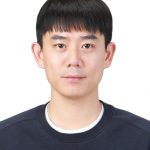
Principal Researcher, Institute of Information and Communication Technology Planning and Evaluation(IITP), Republic of Korea.
Dr. Woo earned a Ph.D. in Computer Science (Artificial Intelligence/Machine Learning) from Chungbuk National University and is currently serving as a Principal Researcher at the Institute of Information and Communication Technology Planning and Evaluation (IITP). He holds several professional positions, including serving as a Member of the Board of Directors for both the Korean Association for Research Managers and Administrators and the Korea Multimedia Society. Dr. Woo has experience in planning national R&D policies and programs in the fields of life sciences and healthcare, and he is currently responsible for the planning and evaluation of national ICT R&D projects, as well as the management of selected projects at IITP.
Contact: cwwoo@iitp.kr
The group is currently being formed and representatives from all INORMS organisations are invited to join and help develop this important agenda. If you would be interested in participating, please contact Elizabeth directly at e.a.gadd@lboro.ac.uk.

